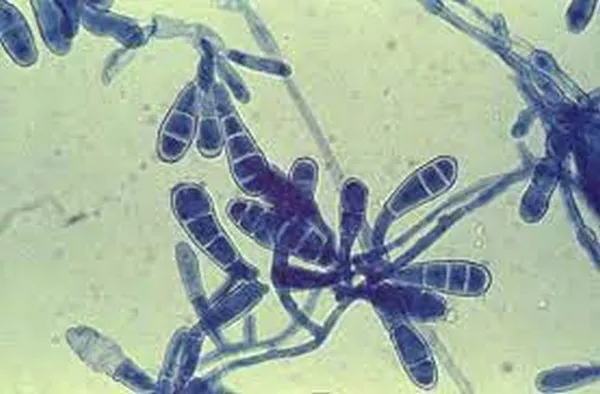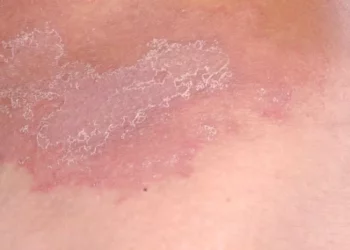Tinea corporis, commonly known as ringworm, is a fungal infection of the skin that manifests as red, itchy, circular rashes. While it is typically not a serious condition, recurrent episodes can be frustrating and concerning for individuals. Understanding the reasons behind recurrent tinea corporis is essential for effective management and prevention. In this article, we will delve into the causes, treatments, and preventive measures for recurrent tinea corporis.
What is Tinea Corporis?
Tinea corporis is caused by various species of dermatophyte fungi, primarily Trichophyton and Microsporum. These fungi thrive in warm, moist environments, making areas of the body with skin-to-skin contact or increased sweating, such as the groin, armpits, and feet, susceptible to infection. The infection spreads through direct contact with an infected person or animal, as well as contaminated objects and surfaces.
Causes of Recurrent Tinea Corporis
Several factors contribute to the recurrence of tinea corporis:
1. Incomplete Treatment: One common reason for recurrent tinea corporis is incomplete treatment. Fungal infections can be stubborn, and if treatment is not continued for the recommended duration, the fungus may not be completely eradicated, leading to a resurgence of symptoms.
2. Reinfection: Reinfection occurs when individuals come into contact with fungal spores from contaminated surfaces or objects after completing treatment. Failure to take preventive measures, such as disinfecting personal items and maintaining good hygiene practices, can increase the risk of reinfection.
3. Predisposing Factors: Certain predisposing factors can make individuals more susceptible to recurrent tinea corporis. These include compromised immune function, excessive sweating, occlusive clothing, poor hygiene, and pre-existing skin conditions like eczema or psoriasis. Individuals with diabetes or those taking immunosuppressive medications are also at higher risk.
4. Close Contact: People living in close quarters, such as athletes in locker rooms or military personnel in barracks, are more likely to experience recurrent tinea corporis due to the ease of transmission in such environments.
5. Underlying Medical Conditions: Certain medical conditions, such as hormonal imbalances and obesity, can create an environment conducive to fungal growth, increasing the likelihood of recurrent tinea corporis.
Treatment Options
Effective treatment of recurrent tinea corporis involves addressing both the underlying infection and predisposing factors. Treatment modalities include:
1. Topical Antifungal Medications: Over-the-counter antifungal creams, lotions, or powders containing ingredients like clotrimazole, miconazole, or terbinafine are typically effective for treating mild to moderate cases of tinea corporis. Prescription-strength formulations may be necessary for severe or recurrent infections.
2. Oral Antifungal Medications: In cases of widespread or persistent tinea corporis, oral antifungal medications such as terbinafine, itraconazole, or fluconazole may be prescribed by a healthcare professional. These medications are particularly useful for addressing systemic fungal infections or those resistant to topical treatments.
3. Hygiene Measures: Practicing good hygiene is essential for preventing and managing recurrent tinea corporis. This includes keeping the affected areas clean and dry, wearing loose-fitting clothing made of breathable fabrics, and avoiding sharing personal items such as towels, clothing, or grooming tools.
4. Environmental Measures: Disinfecting personal items, such as clothing, towels, and bedding, can help prevent the spread of fungal spores and reduce the risk of reinfection. Regularly cleaning and disinfecting high-contact surfaces in shared environments can also limit the transmission of the fungus.
5. Lifestyle Modifications: Addressing predisposing factors such as obesity, excessive sweating, and underlying medical conditions can help reduce the likelihood of recurrent tinea corporis. Maintaining a healthy weight, managing underlying health conditions, and practicing good overall hygiene are essential components of long-term prevention.
SEE ALSO: Why Ringworm Causes Itching
Preventive Strategies
Preventing recurrent tinea corporis requires a multifaceted approach that addresses both individual and environmental factors:
1. Education: Educating individuals about the causes, symptoms, and preventive measures of tinea corporis is crucial for raising awareness and promoting early detection and treatment.
2. Hygiene Practices: Encouraging good hygiene practices, such as regular handwashing, showering after physical activity, and keeping skin clean and dry, can help prevent the spread of fungal infections.
3. Environmental Hygiene: Implementing routine cleaning and disinfection protocols in shared environments, such as gyms, schools, and healthcare facilities, can help reduce the risk of fungal transmission.
4. Personal Protective Measures: Encouraging the use of personal protective equipment, such as sandals in communal showers or locker rooms, can minimize direct contact with contaminated surfaces.
5. Regular Screening: Regular screening for tinea corporis, especially in high-risk populations, can facilitate early detection and prompt treatment, reducing the likelihood of recurrence.
Conclusion
Recurrent tinea corporis can be a persistent and frustrating condition, but with proper understanding, treatment, and preventive measures, it can be effectively managed and prevented. By addressing the underlying causes, practicing good hygiene, and implementing environmental controls, individuals can reduce their risk of recurrent infections and maintain healthy, fungal-free skin. If recurrent tinea corporis persists despite appropriate measures, consulting a healthcare professional is recommended to explore further treatment options and address any underlying medical conditions.
Related Topics:



























